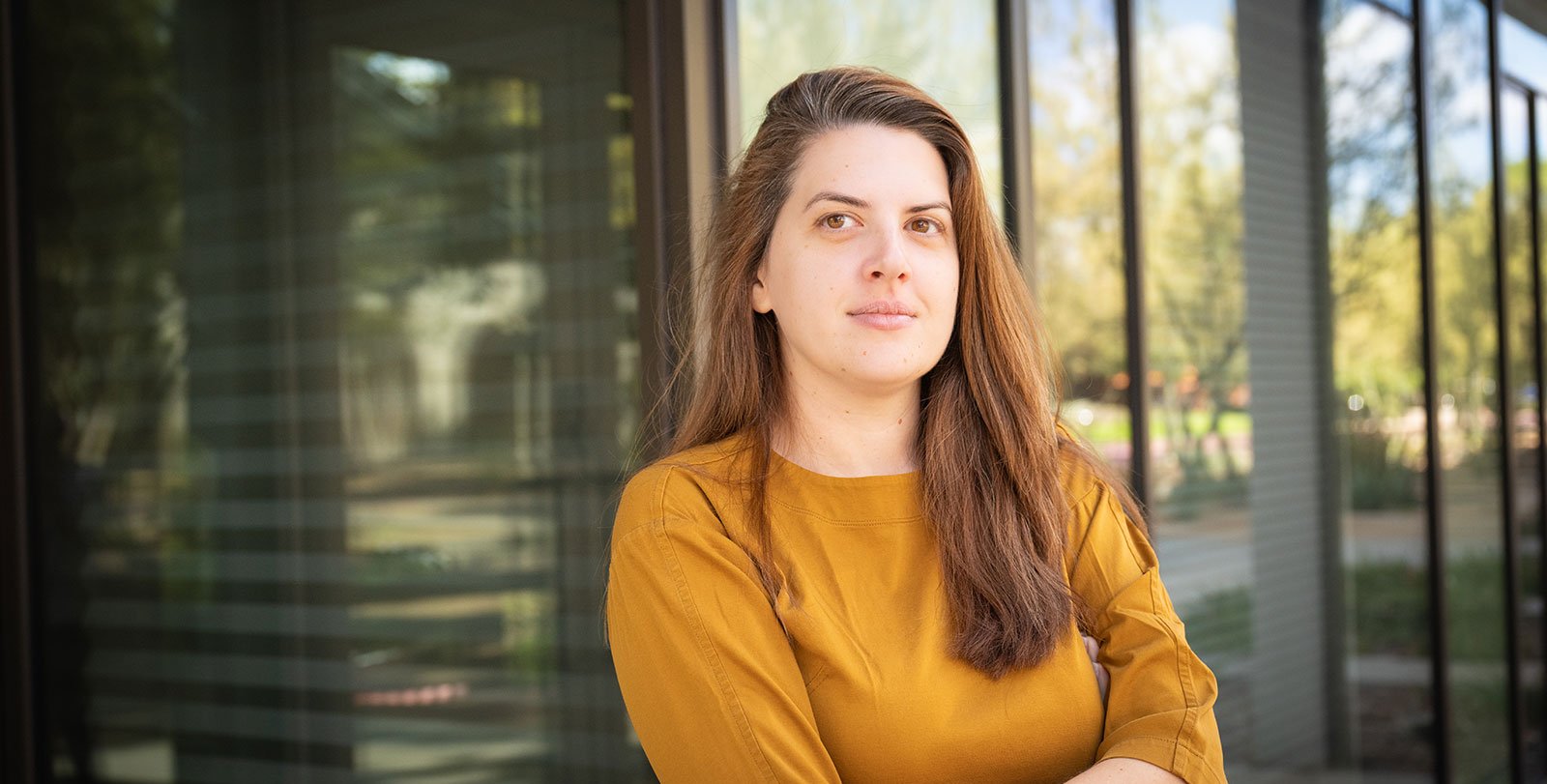Georgia Gkioxari, assistant professor of computing and mathematical sciences and electrical engineering at Caltech, has been selected to be one of 20 Packard Fellows for 2025. The Packard Fellowships for Science and Engineering are prizes of $875,000 in unrestricted funds for early career researchers to use over a five-year period.
Gkioxari, who is also a William H. Hurt Scholar, was awarded the fellowship for her research that "gives machines the ability to perceive the world," according to a press release from the David and Lucile Packard Foundation. "My research is in computer vision, a form of artificial intelligence," Gkioxari explains. "I build computational models that take images and videos as input. Through these models, I'm trying to allow computers to see the world just as you and I can see it through our eyes and analyze the light that comes in."
Human vision is a highly complex skill that allows us to not only see but to then process and understand what is going on around us and predict how our actions might impact our environment. "We do this very seamlessly. We are not even aware of trying most of the time," Gkioxari says. "Sadly, that's not the case for our machines. We have to build their skill to do that. In order to teach machines to see, we require hundreds of millions of training data, which is a different task than we had when we learned to see the world."
"Understanding the world through visual inputs is one aspect of human intelligence we emulate to some degree with computer vision," Gkioxari says. "But specifically in my research, I am attempting to understand exactly how to steer our computer models and scientific problem statements to assist with a variety of scientific problems. For example, I have colleagues at Caltech whose goal is to take microscopic images and train computers to find cancer cells. There is meaning in these images, but we still need to find a way to extract it."
Gkioxari is currently collaborating with Caltech assistant professor of economics Hannah Druckenmiller, also a William H. Hurt Scholar, to train computers to mine the tremendous amount of visual data we have on the natural world and its resources in order to better track environmental change over time and predict its impact on the built environment.
Robotics is another field where computer vision can be transformative. "We use our vision to choose actions and then use the visual results of those actions to train our vision further," Gkioxari says. "Similarly, autonomous systems need to see and continue to learn how to see in order to act in the world."
These examples illustrate that computer vision has been developed to tackle specific tasks in the laboratory—and outside it as well, as we can see from self-driving vehicles that use data from cameras to make decisions such as when to turn and when to brake—but what is still missing is a more general model of computer vision that can be incorporated across vastly different applications. This is the task to which Gkioxari is committed.
The Packard Fellowship was established nearly four decades ago for the David and Lucille Packard Foundation by David Packard, co-founder of Hewlett-Packard. "We honor our founder's legacy by ensuring that science in America remains a beacon: advancing knowledge, informing action, and creating a more sustainable world for generations to come," said Nancy Lindborg, president and CEO of the Packard Foundation, in the foundation's press release.

